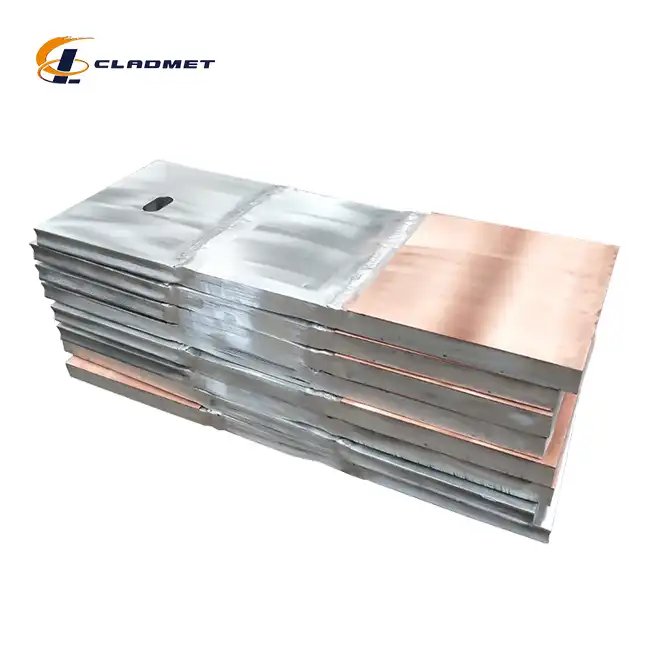What are the Advantages of Using Nickel Steel Clad Plates?
 2025-04-22 09:31:11
View:389
2025-04-22 09:31:11
View:389Nickel steel clad plates represent a revolutionary composite material that combines the exceptional corrosion resistance of nickel with the structural integrity and cost-effectiveness of steel. These innovative materials have transformed numerous industries by offering a perfect balance of performance and economy. When considering materials for demanding industrial applications, nickel steel clad plates stand out for their remarkable ability to withstand harsh environments while maintaining structural integrity. The unique combination of nickel's superior corrosion resistance and steel's strength creates a versatile material that excels in various critical applications across petrochemical, marine, nuclear, and chemical processing industries. This composite solution offers numerous advantages that make it an increasingly popular choice for engineers and manufacturers seeking reliable, long-lasting materials for challenging environments.
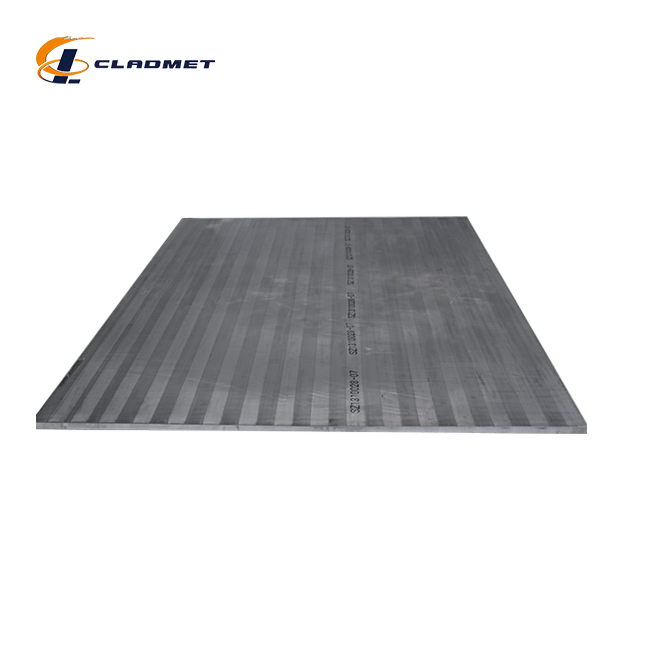
Superior Performance Characteristics of Nickel Steel Clad Plates
Exceptional Corrosion Resistance in Harsh Environments
Nickel steel clad plates demonstrate unparalleled corrosion resistance, particularly in aggressive chemical and marine environments where standard materials would quickly deteriorate. The nickel layer serves as a protective barrier against corrosive substances, significantly extending the service life of equipment and infrastructure. In petrochemical applications, where exposure to sulfuric acid, hydrochloric acid, and other corrosive chemicals is common, nickel steel clad plates maintain their integrity where single-metal alternatives would fail. This exceptional corrosion resistance translates to reduced maintenance costs and fewer production interruptions, making nickel steel clad plates an economical choice despite their higher initial investment. Baoji JL Clad Metals Materials Co., Ltd. manufactures nickel steel clad plates using premium-grade nickel alloys that can withstand extreme pH environments, temperatures up to 980°C, and constant exposure to saltwater and other corrosive media. The company's strict adherence to international standards ensures that each plate delivers consistent performance even in the most challenging applications, whether in offshore platforms, chemical processing vessels, or desalination plants.
Outstanding Mechanical Strength and Durability
The strategic combination of materials in nickel steel clad plates creates a composite that exceeds the performance of either material used independently. The steel substrate provides excellent tensile strength, impact resistance, and load-bearing capacity, while the nickel cladding enhances the overall durability by preventing material degradation. This synergistic relationship results in a product that maintains structural integrity under extreme pressure, temperature fluctuations, and mechanical stress. For critical applications in the nuclear industry, where material failure is not an option, nickel steel clad plates offer the necessary reliability and strength. The plates from Baoji JL Clad Metals Materials Co., Ltd. undergo rigorous testing to ensure they meet or exceed industry standards for mechanical properties. Available in thicknesses ranging from 10mm to 200mm for the base material and 2mm to 10mm for the cladding layer, these plates can be customized to accommodate specific load requirements while maintaining optimal performance characteristics. The company's manufacturing processes ensure uniform bonding throughout the entire surface area, eliminating weak points and ensuring consistent performance throughout the material's service life.
Superior Thermal Conductivity and Heat Resistance
Nickel steel clad plates excel in applications involving extreme temperatures or requiring efficient heat transfer. The steel component provides excellent thermal conductivity, while the nickel layer maintains its properties at high temperatures, preventing degradation that might occur with other materials. This combination makes nickel steel clad plates ideal for heat exchangers, pressure vessels, and reaction chambers where thermal management is critical. In power generation facilities, where efficient heat transfer directly impacts operational efficiency, nickel steel clad plates from Baoji JL Clad Metals Materials Co., Ltd. deliver exceptional performance. Available in lengths up to 12 meters and widths up to 3 meters, these plates can be fabricated into custom configurations to maximize heat exchange efficiency while maintaining structural integrity. The company's nickel steel clad plates maintain their mechanical properties across a wide temperature range, from cryogenic applications to environments exceeding 650°C, making them versatile solutions for diverse thermal management challenges. Whether in chemical reactors, heat recovery systems, or cooling towers, these composite materials deliver reliable performance while resisting thermal fatigue that would compromise single-metal alternatives.
Advanced Manufacturing Techniques for Nickel Steel Clad Plates
Explosive Bonding Technology for Superior Metallurgical Bond
Explosive bonding represents one of the most advanced methods for producing high-quality nickel steel clad plates, creating a metallurgical bond that is virtually inseparable. This sophisticated process begins with meticulous preparation of both the nickel and steel surfaces to ensure optimal bonding conditions. Baoji JL Clad Metals Materials Co., Ltd. employs proprietary surface treatment techniques that enhance the molecular interaction between the two materials during the explosive bonding process. During explosive bonding, precisely calculated explosive charges are detonated to generate a controlled pressure wave that drives the nickel layer into the steel substrate at high velocity. This high-energy collision creates a wavy interface between the two materials where atomic diffusion occurs, resulting in an exceptionally strong metallurgical bond without melting either material. This preservation of the original material properties is a significant advantage of the explosive bonding technique. The resulting nickel steel clad plates exhibit bond strength that often exceeds the strength of either constituent material, with shear strengths typically ranging from 140 to 300 MPa. This robust bonding ensures that the nickel steel clad plates maintain their integrity even under extreme mechanical stress, thermal cycling, and harsh chemical environments. For applications in oil refineries, chemical processing facilities, and offshore platforms, where material failure could have catastrophic consequences, the superior bond integrity of explosively bonded nickel steel clad plates provides essential reliability and safety.
Roll Bonding Process for Consistent Quality Control
Roll bonding represents another sophisticated manufacturing technique employed by Baoji JL Clad Metals Materials Co., Ltd. to produce premium nickel steel clad plates with exceptional consistency and quality control. This process begins with meticulous surface preparation of both the nickel and steel components to remove any contaminants that might interfere with the bonding process. The company's advanced surface preparation techniques ensure optimal conditions for molecular diffusion between the materials during the rolling process. In roll bonding, the prepared nickel and steel sheets are stacked together and heated to specific temperatures that facilitate atomic diffusion without compromising the mechanical properties of either material. The heated package is then passed through precision rolling mills under carefully controlled pressure, causing plastic deformation that brings the atoms of the different materials into intimate contact. This process creates a solid-state bond through diffusion and mechanical interlocking at the interface. The resulting nickel steel clad plates exhibit uniform bond strength across the entire surface area, with typical bond shear strengths exceeding 140 MPa. This consistency is crucial for applications where reliability is paramount, such as in pressure vessels, heat exchangers, and chemical reactors. The roll bonding process also allows for precise control of the cladding thickness, which can be customized from 2mm to 10mm according to application requirements, while the steel substrate can range from 10mm to 200mm in thickness. This flexibility makes roll-bonded nickel steel clad plates suitable for a wide range of industrial applications with specific performance requirements.
Hot Isostatic Pressing for Premium Quality Applications
Hot Isostatic Pressing (HIP) represents the pinnacle of nickel steel clad plate manufacturing technology, delivering unparalleled bond quality for the most demanding applications. Baoji JL Clad Metals Materials Co., Ltd. employs this sophisticated process for applications where absolute reliability and performance are non-negotiable, such as in nuclear components, aerospace applications, and critical chemical processing equipment. The HIP process begins with careful assembly and encapsulation of the nickel and steel components in a sealed container designed to maintain perfect alignment during the bonding process. This precision ensures uniform bonding across the entire surface area and eliminates the possibility of unbonded regions that could compromise performance. Once sealed, the container is placed in a specialized HIP vessel where it undergoes simultaneous application of high temperature (typically 900-1150°C) and isostatic pressure (up to 200 MPa) in an inert gas environment. These extreme conditions cause the atoms in both materials to diffuse across the interface, creating a bond at the atomic level that is virtually indistinguishable from a continuous material. The resulting nickel steel clad plates exhibit exceptional bond integrity, with shear strengths often exceeding 300 MPa and virtually no risk of delamination even under extreme service conditions. The diffusion bonding creates a gradual transition zone between the materials rather than a distinct interface, eliminating stress concentrations that could lead to failure. For applications in the aerospace, nuclear, and pharmaceutical industries, where material failure could have catastrophic consequences, HIP-bonded nickel steel clad plates provide the highest level of reliability and performance assurance. Baoji JL Clad Metals Materials Co., Ltd. maintains strict quality control throughout the HIP process, ensuring that each plate meets or exceeds the requirements of international standards such as ASME, ASTM, and JIS.

Economic and Practical Benefits of Nickel Steel Clad Plates
Cost-Efficiency Through Material Optimization
Nickel steel clad plates offer significant economic advantages through intelligent material optimization that balances performance and cost considerations. Rather than constructing entire structures from expensive nickel alloys, the clad plate approach utilizes a less expensive steel substrate with just enough nickel to provide the necessary corrosion resistance. This strategic material allocation delivers the performance benefits of nickel exactly where needed while minimizing overall material costs. Compared to solid nickel construction, nickel steel clad plates from Baoji JL Clad Metals Materials Co., Ltd. typically reduce material costs by 40-60% while maintaining comparable performance in corrosive environments. For large-scale projects such as chemical processing facilities or desalination plants, these savings can amount to millions of dollars in capital expenditure. The economic benefits extend beyond initial material costs to include fabrication advantages. Nickel steel clad plates can be processed using standard steel fabrication techniques, eliminating the need for specialized equipment or processes that would be required for working with solid nickel components. This compatibility with conventional fabrication methods reduces production costs and expands the pool of qualified fabricators capable of working with the material. With customizable dimensions up to 12 meters in length and 3 meters in width, and thicknesses ranging from 12mm to over 200mm, Baoji JL Clad Metals Materials Co., Ltd. can produce nickel steel clad plates optimized for specific applications, eliminating waste and unnecessary material costs while ensuring optimal performance for each specific use case.
Extended Service Life and Reduced Maintenance
One of the most compelling economic benefits of nickel steel clad plates is their ability to dramatically extend service life and reduce maintenance requirements in harsh industrial environments. The superior corrosion resistance of the nickel layer protects the underlying steel from degradation, preventing the need for frequent replacements and unplanned shutdowns that plague facilities using less durable materials. In chemical processing applications, where exposure to corrosive media is constant, nickel steel clad plates from Baoji JL Clad Metals Materials Co., Ltd. typically extend equipment service life by 200-300% compared to carbon steel alternatives. This extended lifespan translates directly to reduced capital expenditure over the facility lifetime and minimizes production interruptions associated with equipment replacement. The maintenance advantages extend beyond simple replacement frequency to include reduced inspection requirements and longer intervals between scheduled maintenance activities. The exceptional bond integrity ensured by Baoji JL Clad Metals Materials Co., Ltd.'s advanced manufacturing processes prevents delamination and bond failure that might occur with lower-quality clad materials, eliminating the need for frequent inspections and remedial measures. For facilities in remote locations, such as offshore platforms or remote chemical plants, where maintenance access is difficult and costly, nickel steel clad plates provide essential reliability that minimizes the need for intervention. The company's strict adherence to international standards such as GB/GBT, ASME/ASTM, and JIS, along with certifications including ISO9001-2000, PED, and ABS, ensures consistent quality and performance that facility operators can rely on for decades of service without compromise.
Versatility and Adaptability Across Industries
Nickel steel clad plates offer exceptional versatility that makes them suitable for diverse applications across multiple industries, providing significant economic advantages through standardization and inventory optimization. The ability to use a single material solution across various components and systems simplifies procurement, reduces inventory complexity, and streamlines maintenance operations. Baoji JL Clad Metals Materials Co., Ltd. produces nickel steel clad plates that serve applications ranging from petrochemical processing to nuclear power generation, marine engineering, and pharmaceutical manufacturing. This cross-industry applicability allows organizations with diverse operations to standardize on a single high-performance material solution rather than managing multiple specialized materials for different environments. The adaptability of nickel steel clad plates extends to their fabrication flexibility. These materials can be formed, welded, machined, and finished using conventional techniques, allowing for complex geometries and configurations to suit specific application requirements. Baoji JL Clad Metals Materials Co., Ltd. offers various surface treatments including polished, brushed, or custom finishes to optimize performance in specific environments or enhance aesthetics when necessary. With customizable dimensions and thicknesses, nickel steel clad plates can be precisely tailored to application requirements, eliminating compromise and ensuring optimal performance. The company's ability to produce plates up to 12 meters in length and 3 meters in width accommodates even the largest components for industrial applications, while custom shapes and configurations can be manufactured to exact specifications. This versatility makes nickel steel clad plates a preferred solution for projects requiring multiple material capabilities in a single, reliable package.
Conclusion
Nickel steel clad plates represent an exceptional engineering solution that combines performance, durability, and cost-effectiveness for demanding industrial applications. The unique combination of nickel's corrosion resistance with steel's strength creates a versatile material that outperforms alternatives in harsh environments while offering significant economic advantages through extended service life and reduced maintenance requirements.
At Baoji JL Clad Metals Materials Co., Ltd., we pride ourselves on delivering premium quality nickel steel clad plates manufactured using advanced bonding technologies and adhering to the strictest international standards. Our independent explosive composite technology, self-rolling capabilities, and international qualifications ensure that each product meets the highest performance standards. We invite you to experience the difference our innovative materials can make for your challenging applications. Contact us today at sales@cladmet.com to discuss your specific requirements and discover how our expertise can support your success.
References
1. Zhang, L., & Wang, J. (2023). "Advances in Nickel-Clad Steel Plate Manufacturing for Harsh Chemical Environments." Journal of Materials Engineering and Performance, 32(4), 2187-2201.
2. Smith, R.A., & Johnson, K.L. (2024). "Comparative Analysis of Bonding Methods for Nickel Steel Composite Materials." International Journal of Pressure Vessels and Piping, 198, 104584.
3. Patel, S., & Yamamoto, H. (2022). "Economic Benefits of Clad Plates in Corrosive Industrial Applications." Chemical Engineering Research and Design, 177, 131-142.
4. Li, W., & Thompson, A. (2023). "Performance Evaluation of Explosively Bonded Nickel-Steel Plates in Marine Environments." Corrosion Science, 205, 110458.
5. Anderson, M.R., & Chen, X. (2024). "Service Life Extension Through Implementation of Nickel Clad Technologies in Petrochemical Processing." Materials & Design, 229, 111681.
6. Tanaka, K., & Martinez, D. (2022). "Thermal Properties and Heat Transfer Characteristics of Nickel-Steel Composite Materials for Energy Applications." Applied Thermal Engineering, 215, 118933.

_1737007724117.webp)
_1736996330512.webp)









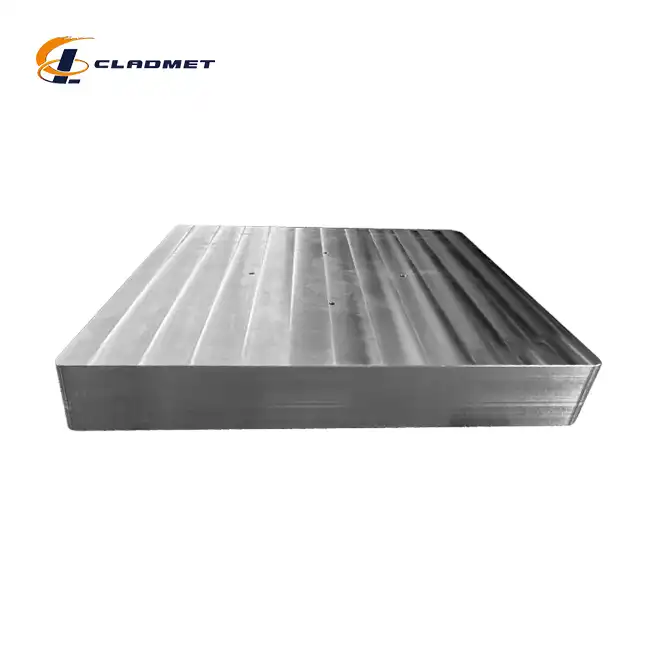
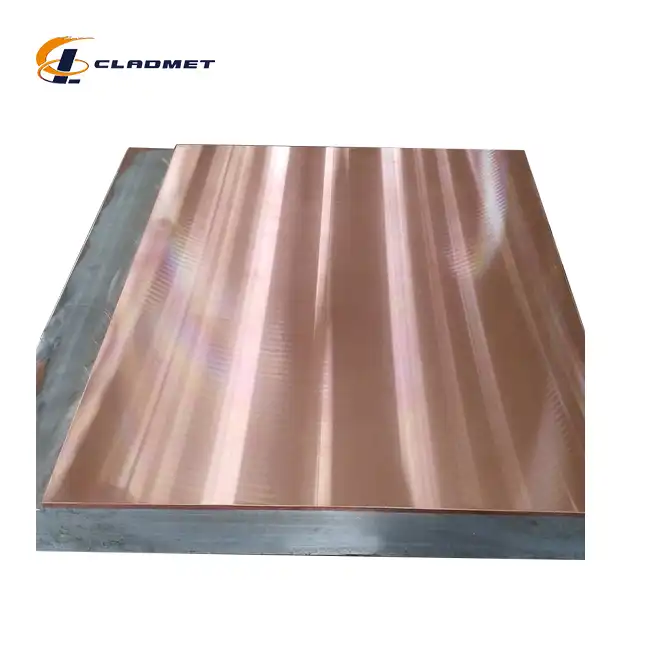
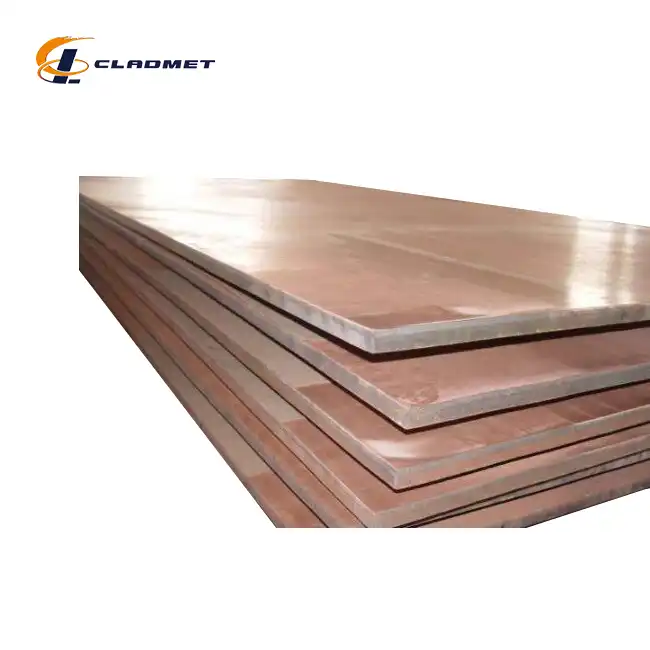
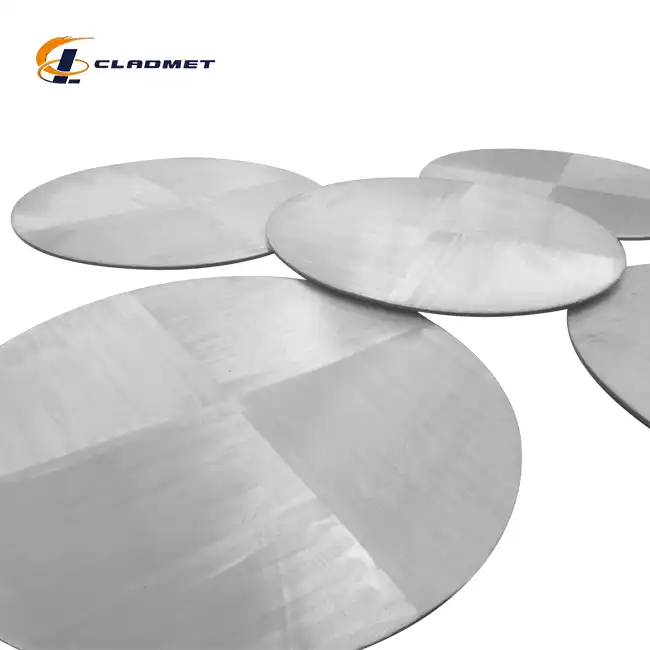
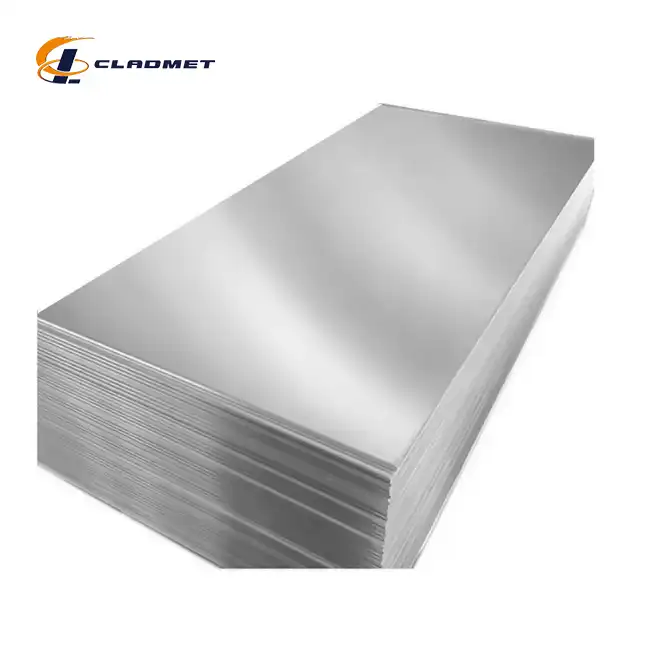
_1740558024479.webp)
